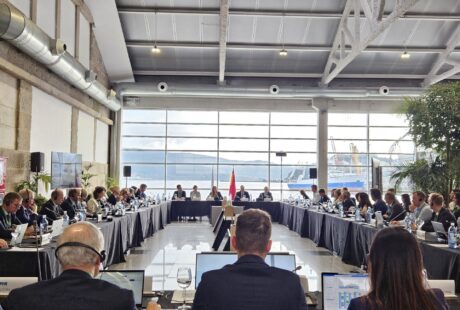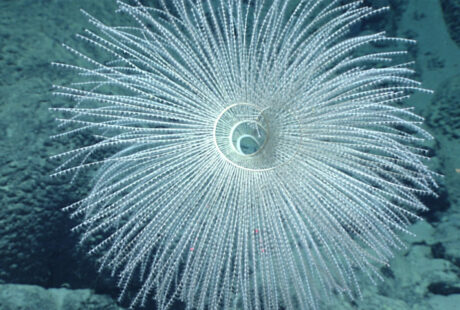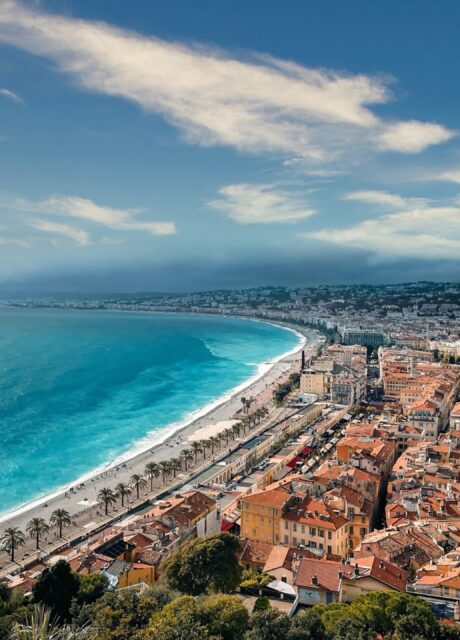International pressure to adopt a moratorium on deep-sea mining is gathering steam following last month’s meetings of the International Seabed Authority (ISA). The United Nations-affiliated body regulates the high seas and will decide whether or not deep-sea mining will be given the green light. After three weeks of intense negotiations the number of countries supporting a moratorium on this harmful practice has reached 21.
Despite attempts by the ISA Secretary General and governments supporting deep-sea mining interests (including Mexico, Nauru, Norway and the United Kingdom) to fast-track the adoption of regulations that would allow mining to begin, the mining code was not adopted as state delegations and civil society organsitions continued to raise warnings about scientific uncertainties, inequity and governance failures.
Although the mining code was successfully blocked for now, the ISA Secretariat put forward a roadmap to have exploitation regulations adopted by the end of 2025, effectively opening up the seabed to mining activities. This underscores the urgency to achieve a broad base of support for a moratorium among ISA members before next year’s Assembly meeting.
The ISA’s far from democratic workings have been widely reported, and unfortunately July’s meetings were no exception. A groundbreaking effort to get a discussion on a precautionary pause on deep-sea mining on the ISA agenda – submitted by Chile, Costa Rica, France, Palau and Vanuatu – was blocked by China on procedural grounds and will have to wait until next year’s Assembly for discussion. The deadlock illustrates the institutional weaknesses of the ISA, which will face a governance review during the 2024 Assembly. Debates were also hampered by the imposition of closed-door meetings, new restrictions for media and civil society organsiations and increasing concerns of corporate influence over the Secretariat.
Portugal, Finland, Brazil and Ireland support a precautionary pause
Portugal changed its previous position after a significant build-up of pressure, including a resolution adopted by the Parliament of the Azores in April calling for a prohibition in Azorean waters until 2050 and a moratorium in international waters. The Portuguese delegation at the ISA supported establishing a pause while there is insufficient scientific knowledge to effectively assess deep-sea mining and prove it would not cause harmful effects to the marine environment.
The area around the Azores, that holds significant ferromanganese crusts and sulphide hydrothermal deposits, was targeted from 2008 until 2019 by Canadian company Nautilus Minerals – responsible for the failed Solwara 1 project in Papua New Guinea.
Finland’s stance was also made public for the first time and shows that Petteri Orpo’s new government will uphold support for a precautionary pause. Earlier this year, representatives from the previous government expressed support for a precautionary pause, with the former Minister of the Environment and Climate Change, Maria Ohisalo, stating that a “good example of ecocide is the effect of seabed mining”.
The shallow waters of the gulfs of Finland and Bothnia have significant deposits of polymetallic nodules, but unlike Norway, Finland has ruled out their extraction. In its 14 July statement at the ISA, the Finnish delegation noted that the plea of the scientific community not to go ahead with exploitation activities at this stage has been clear and well-reasoned and cited a clear need for more scientific research on deep-sea ecosystems.
Similarly, Brazil’s clear support for a precautionary pause is particularly important, not only because of its leading regional role but also due to its former status as an ISA exploration contract holder through the publicly-owned Companhia de Pesquisa de Recursos Minerais (CPRM). Brazil announced a precautionary pause in areas of its jurisdiction for a minimum period of ten years, and stated that the current level of scientific knowledge is insufficient to approve projects in areas beyond national jurisdiction.
Ireland is another new addition to the growing list of countries supporting a precautionary pause until the scientific knowledge base is sufficient to allow for informed decision-making. Earlier this month Ireland’s Deputy Prime Minister and Minister for Foreign Affairs, Micheál Martin, stated that “Ireland today joins a growing chorus of countries, scientists, civil society organisations and private companies calling for a precautionary pause of deep-sea mining”, highlighting that the “international community has a responsibility to protect the marine environment, which is under greater pressure than ever.”
For more information about the outcome of the ISA meetings, please check out the Deep Sea Conservation Coalition’s ISA tracker.
Posted on: 2 August 2023



